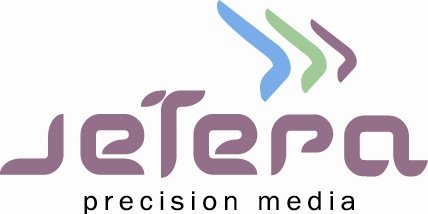Retired CEO and veteran Board of Directors member, Bob LeBlanc (BL) sized up the potential of JETERA early, becoming an investor in 2006. This month Bob joined JETERA’s Board of Advisors. Tim Libby (TL) interviewed the Ridgefield, Connecticut-resident to learn about his plans for making his presence felt in the JETERA venture.
TL: You have extensive business and boardroom experience. How will you put that experience to work as a member of JETERA’s Board of Advisors?
BL: Much of my career focused on developing and growing businesses for my companies. You develop a business by figuring out what your customers need or want and by delivering them a product or service at a price that generates profit for your shareholders. Our initial efforts will benefit from this skill.
TL: In your experience, what does it take to get people to buy?
BL: You have to understand the value your product or service provides. Then you need to communicate and demonstrate that value in easily understood messages. Do these steps right and they buy. But it’s not as easy as it sounds.
TL: What kind of value does JETERA offer?
BL: You could sum it up as a “brand new,” “better” and “more efficient” way to advertise.
TL: Can you expand on this for us?
BL: Yes. The JETERA concept is entirely new for everyone involved in the delivery chain and it offers a better way to get a number of things done. For example, it’s new and more efficient for advertisers because of higher relevancy and precision and timing features. It’s new and better for consumers because it can deliver content of interest, while filtering out the junk. It’s new and better for businesses because it opens up partnering opportunities and media channels for delivering messages, products and services. And it offers a new and more efficient tool for performing market analysis and research for new-product development and customer relations. There is enormous potential value within these capabilities.
TL: How fast will “brand new,” “better” and “more efficient” lead to success?
BL: As with any new, disruptive technology, JETERA forces decisions to abandon old ways and adopt new ones. And that’s a challenge. Change is not always embraced, but our competitive advantage is that we are first in a lot of things.
TL: What are the firsts you see?
BL: JETERA is the first to discover the value of combining reservation data of any type with data-rich demographic information. The idea is so original it’s patentable, somewhat like Priceline’s concept that resulted in a systems-and-methods patent.
TL: Other firsts?
BL: It’s the first, true, integrated set of media with a one-to-one focus delivered by a single provider. JETERA will serve a mass market of highly selected customers and prospects. This provides advertisers campaign continuity, broad coverage and waste-free accuracy. Advertisers will pay a premium for that. Every recipient will be demographically or circumstantially appropriate for every message he or she receives. JETERA’s is a “Blue Ocean” concept. The company has no competitor that can approach the scope and uniqueness of its offering.
TL: Why is being first important?
BL: Being the “first mover” with a new idea is a critical success factor. It helps to be the one who invented the idea. It helps even more to have a patent pending. And it helps to have a management team with the skill-set to tackle the array of challenges a startup faces. JETERA has these things going for it.
TL: How do you plan to help speed the success of JETERA?
BL: I’ve served on a number of boards, I’ve been a CEO and I have helped build and grow businesses and make them profitable. JETERA has an exciting journey ahead. Success in business is seldom a mistake. You must be methodical, intelligent, patient and willing to take risks. I have been impressed with the caliber of the JETERA management team from the start. They have a great mix of skills and I plan to add my experience and my skills to the mix.
Wednesday, June 13, 2007
Subscribe to:
Posts (Atom)


